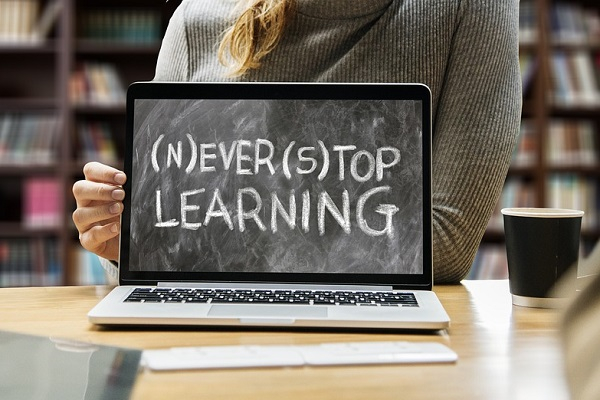The newer way of learning in the corporate landscape, popularly termed Digital Learning has been re-defining itself since its advent. This industry has a market cap of $140 billion, and globally, it surpasses $300 billion in the realm of education and professional development. Digital learning has enabled businesses and employees to educate themselves anytime, anywhere. For instance, people are learning so much everyday by just logging on to their social media handles or even browsing websites. While people are learning through multiple sources - it is essential to aggregate all these sources under one roof and personalize the experience of learning as per individual preferences.
New-age learning
The new-age learning hubs include knowledge management, open-source content, peer networks, search engines, expert forums, and at times, formal classroom training. In the present scenario, personalizing experiences for the learner is of key importance for most companies. Tools such as Google, YouTube, Workplace by Facebook, Slack, and others have transformed the learning environment and spread the belief that 'learning needs to be delivered where people are!' Josh Bersin, Principal and Founder, Bersin by Deloitte, who is in fact a futurist on L&D says, "Intelligent Personalized Machine Driven' learning experiences are going to make the next wave of learning platforms by 2020." Learning today is more about "flow" rather than "instruction." With attention spans among individuals decreasing, "microlearning" is the learning of tomorrow. Micro courses allow learners to quickly read through, view and consume the learning content in 10 minutes or less. For example, if the learner needs to learn about a concept, he/she can just log on to YouTube to view a video that would explain him/her the concept in simple language with examples.
Curating as against developing content
This suggests that instead of developing your own content, it is better to curate content since there is a plethora of websites that can be intelligently brought to the learner as per his/her needs. A classic example of curated digital learning would be that of a financial expert who uploads an important tip (by writing an article or making a video) on the latest changes in tax filing on Slack or Workplace by Facebook and shares it with his/her workgroup. The new pathway of integrating tools for content discovery, communication, messaging and AI-based intelligence is paving the way for next-generation learners. Tim Quinlan, Director of Digital Platform for Learning at Intel believes that as L&D budgets are shrinking with the passage of time, it is important to curate content instead of creating it. At Intel, his learning team built an internal digital platform for employees thinking of them as customers. With the help of his team, Tim developed a learning experience without storing content or authoring it in any way that enabled users to "browse, read, consume, and rate content using intelligent recommender systems."
The digital learning world of modern days has also taken into account the way of learning of the traditional learner. A traditional learner might find it difficult to understand through curated content alone, and hence, virtual coaching is another option that the companies can adopt. It is believed that the virtual AI-based coach will play a role in connecting with the learner. Along with Virtual Coaching, Virtual Reality (VR) is also something that holds a promising future. VR could make experiential learning possible for learners and "reinforce learning by doing." Hence, as we realize the pain points in the L&D industry and the decreasing use of the Learning Management System (LMS), the LMS will soon become a tool for record-keeping and compliance. Today, we need to concentrate more on an "employee-centric" design. So, the time is ripe to bring down the walls and learn in collaboration and infuse new skillsets and perspectives into the L&D industry.

Does your organisation support you in maintaining work-life boundaries?
Trending
-
SBI General Insurance Launches Digital Health Campaign
-
CredR Rolls Out 'Life Happens' Leave For Its Employees
-
Meesho Announces 30-Week Gender-Neutral Parental Leave Policy
-
Microsoft Unveils Tech Resilience Curriculum To Foster An Inclusive Future
-
60% Indian Professionals Looking For Job Change Due To COVID: Survey
-
SpringPeople And Siemens Collaborate For Digital Transformation Push
-
86% Professionals Believe Hybrid Work Is Essential For Work Life Balance: Report
-
Almost 1 In Every 3 People's Personal Life Affected Due To Work Stress
-
Meesho Rolls Out Reset And Recharge Policy For Employees
-
80% Of Talent Leaders & Academics Say Pandemic Changed Skill Needs For Youth: Report
-
Hero Electric Rolls Out 'Hero Care' Program For Employees
-
Human Capital In Collaboration With ASSOCHAM Hosts Virtual Conference
-
IKEA India, Tata STRIVE Collaborate To Create Employability And Entrepreneurship Opportunities
-
SAP India, Microsoft Launch Tech Skilling Program for Young Women
-
DXC Technology, NASSCOM Collaborate For Employability Skills Program
-
Lenskart To Hire Over 2000 Employees Across India By 2022
-
Mindtree Launches Learn-and-Earn Program
-
Tata AIA Extends 'Raksha Ka Teeka' To Its Employees
-
Swadesh Behera Is The New CPO Of Titan
-
NetConnect Global Plans To Recruit 5000 Tech Professionals In India
-
Hubhopper Plans To Hire 60% Of Indian Podcasters By 2022
-
Corporate India Needs More Women In Leadership Roles: Report
-
Aon to Invest $30 Million and Create 10,000 Apprenticeships by 2030
-
Tech Mahindra Launches ‘Gift a Career’ Initiative for Upskilling of Youth
-
40% Women Prefer Flexible Working Options in Post-COVID World: Survey
-
3 out of 4 companies believe they can effectively hire employees virtually: Report
-
Vodafone , CGI and NASSCOM Foundation launch digital skills platform
-
Odisha: Bank, postal employees to deliver cash for elderly, differently-abled persons
-
Skill India launches AI-based digital platform for "Skilled Workforce"
-
Hiring activity declines 6.73% in first quarter: Survey
-
70% startups impacted by COVID-19 pandemic
-
Bajaj Allianz Life ropes in Santanu Banerjee as CHRO
-
Over 70 Percent MSMEs look at cutting jobs to sustain businesses
-
93 Per Cent employees stressed about returning to office post-lockdown
-
Johnson & Johnson India announces family benefits for same gender partners
-
Indian firms turning friendly towards working mothers
-
Welspun India names Rajendra Mehta as new CHRO
-
Wipro partners with NASSCOM to launch Future Skills platform



Human Capital is niche media organisation for HR and Corporate. Our aim is to create an outstanding user experience for all our clients, readers, employers and employees through inspiring, industry-leading content pieces in the form of case studies, analysis, expert reports, authored articles and blogs. We cover topics such as talent acquisition, learning and development, diversity and inclusion, leadership, compensation, recruitment and many more.
Subscribe Now












































Comment